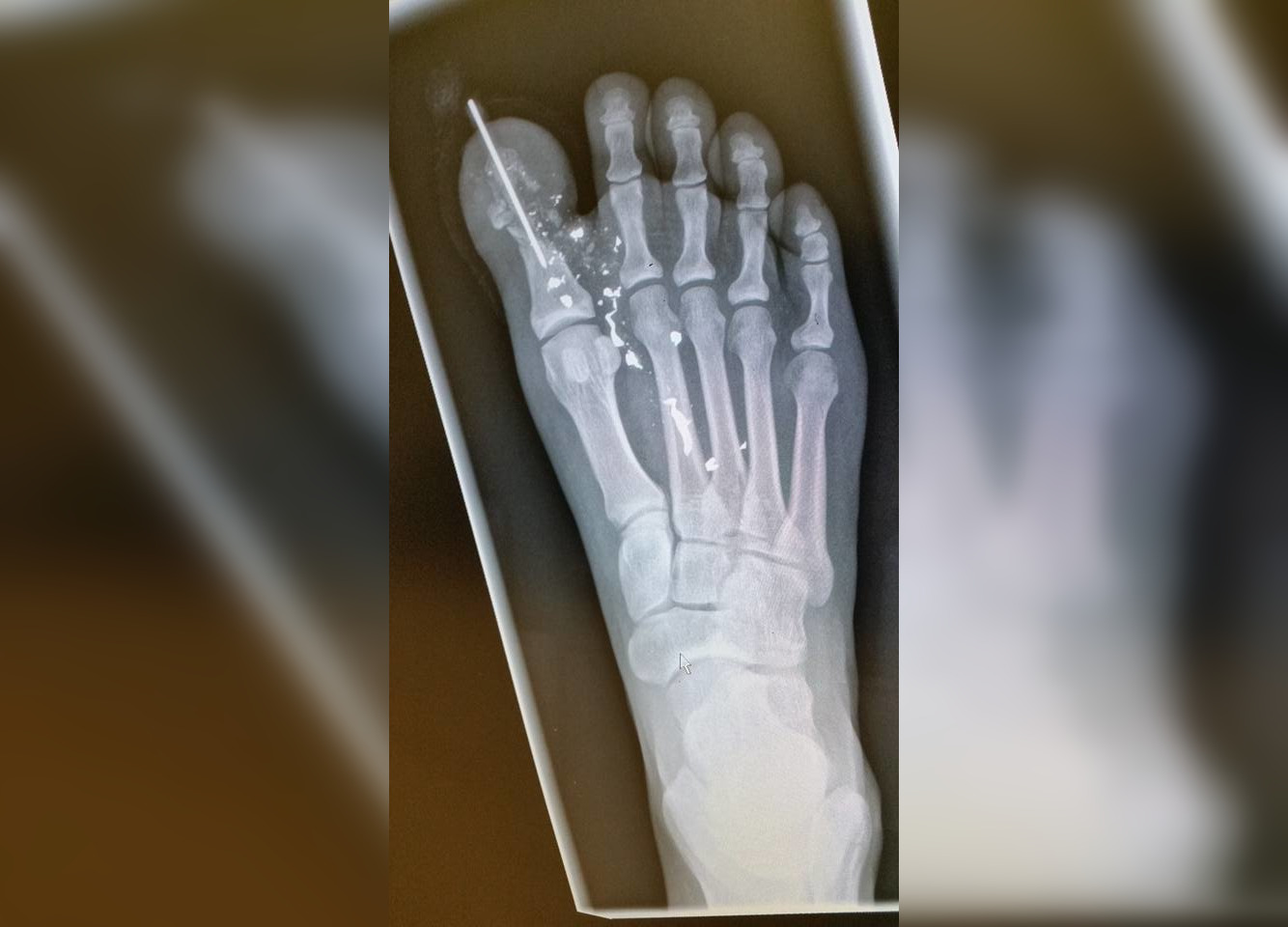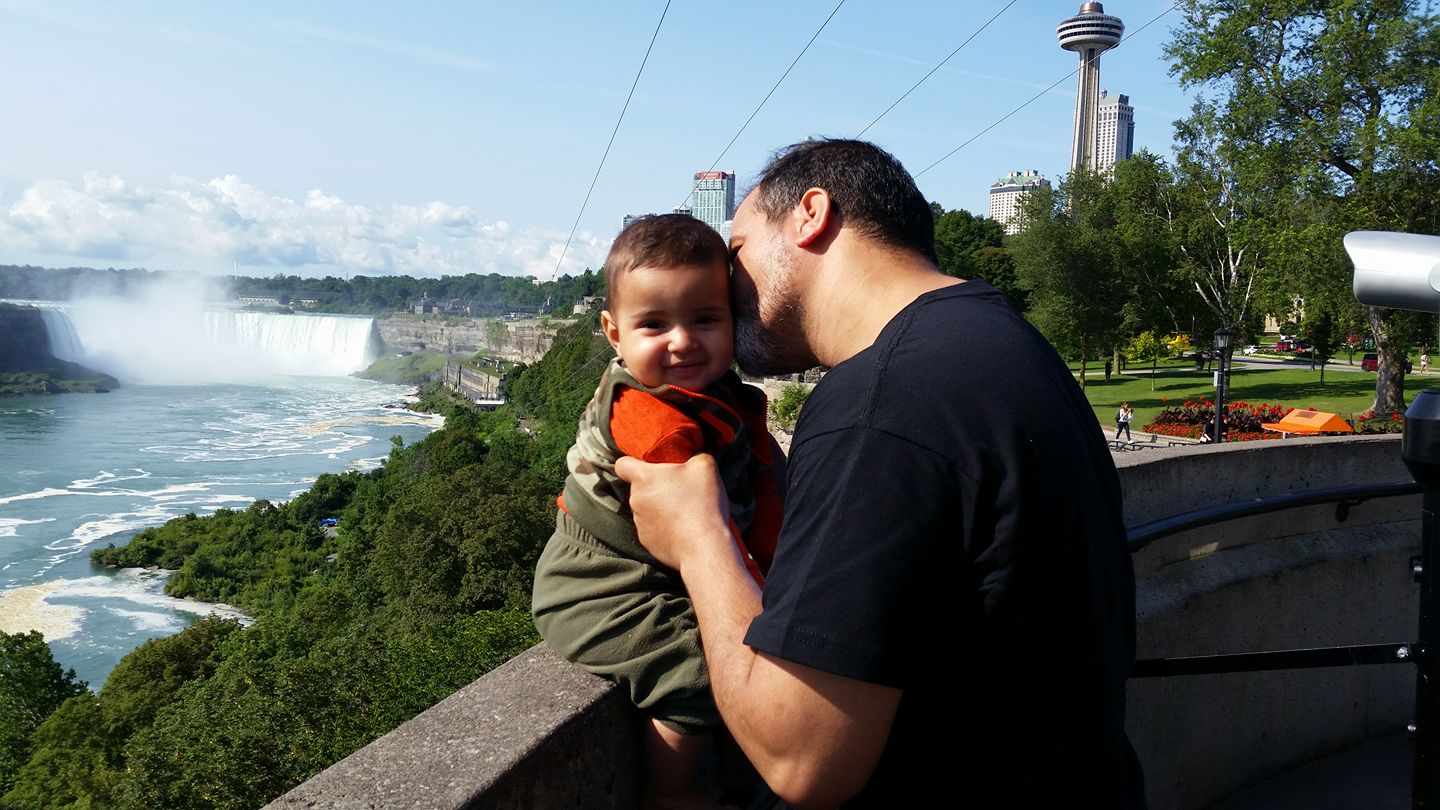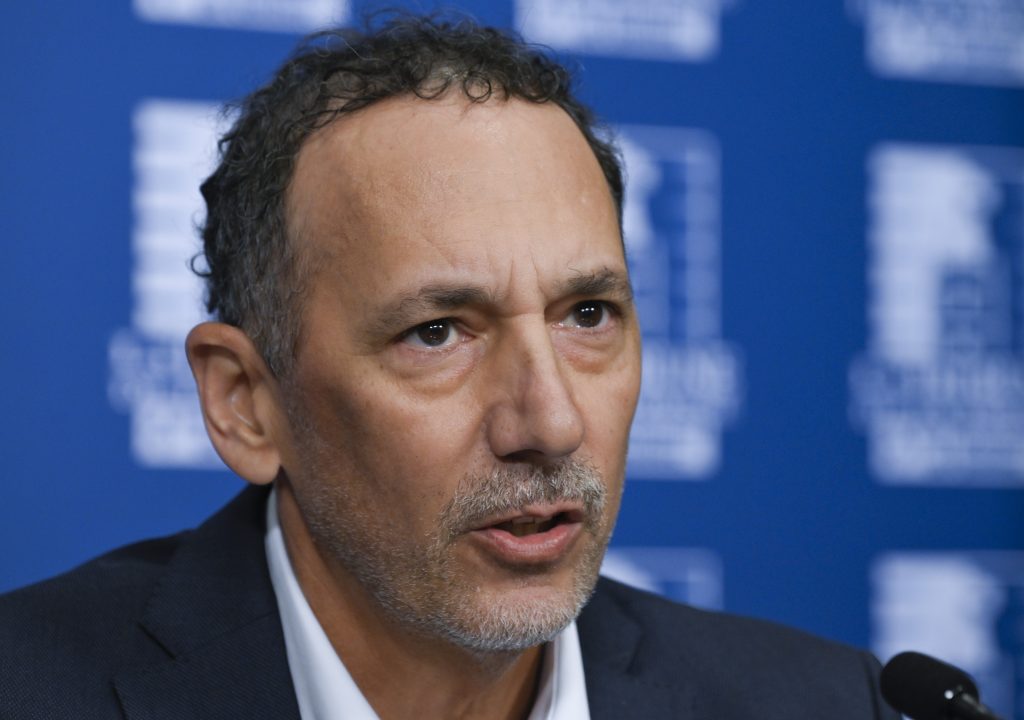‘My life stopped that day’: Screams, dead bodies continue to haunt Quebec City mosque survivor

Posted January 27, 2022 9:00 am.
Last Updated January 27, 2022 7:21 pm.
Editor’s note: This article contains details some readers may find distressing
As bullets flew toward him, Mohamed Khabar thought only of his son.
Khabar was finishing evening prayers at the Islamic Cultural Centre of Quebec City on Jan. 29, 2017 when a shooter walked in and opened fire.
Six people were murdered and 19 others were seriously injured in an attack that shook the province and nation.
Khabar was hit by two bullets – one in his knee, and one in his foot.
“If you can hear the voice of my son now, he was only two months when the attack happened,” said Khabar in Arabic, gesturing toward his son in the background. “When I was first shot, I thought about my son.”
READ MORE:
- Quebec City mosque shooting survivor wants harsher punishments, increased jail time for Islamophobic crimes
- ‘Muslims do not feel safe’: Bill 21 is fuelling Islamophobia in Quebec, say advocates
- Quebec City mosque attack five years later: imam recalls immense sorrow, disbelief
That night – and the sounds and images from the deadly shooting – are seared in Khabar’s memory, impossible to erase.
Victims falling under bullets, and the screams of fear from children who were present that night, still haunt him to this day – five years later.
The six men killed were Azzedine Soufiane, Aboubaker Thabti, Khaled Belkacemi, Abdelkrim Hassane, Mamadou Tanou Barry and Ibrahima Barry.
“I feel pain, heartbreak and bitterness about losing my brothers and loved ones,” said Khabar. “Although I survived the attack, my life stopped that day.”
Khabar was awarded a medal for bravery for trying to intervene and save people from the shooter. But he wishes he could have done more.
Bullet fragments remain lodged in his leg, causing him immense pain and preventing him from working full-time. The pain makes every-day tasks like running errands very challenging, even with pain medication.
Originally from Morocco, Khabar settled in Quebec City more than a decade ago and opened his own barbershop in Sainte-Foy – the same district as the Islamic Cultural Centre.
“My work requires me to stand all day and I have difficulty,” he said. “It’s impossible now because of the bullet fragments, which causes a lot of pressure, fever and swelling in my leg. I can only do three hours a day. We have fewer clients now and it’s not the same since the attack.”
While Khabar lives with the physical and psychological scars from the attack, he feels there has been no real justice.
The shooter Alexandre Bissonnette pleaded guilty to six counts of first-degree murder and six of attempted murder. He was sentenced originally to 40 years in prison without the possibility of parole.
In November 2020, that time before parole was reduced to 25 years after the appeal court found the consecutive sentencing provision to be unconstitutional.
“I’m not satisfied with the judge’s ruling,” said Khabar.
The Crown appealed to the Supreme Court of Canada, which will hear the case on March 24.
Khabar is urging the Muslim community to work together to fight Islamophobia to prevent attacks like the one five years ago from ever happening again. He also wants to make sure the lives lost and the families affected are never forgotten.










